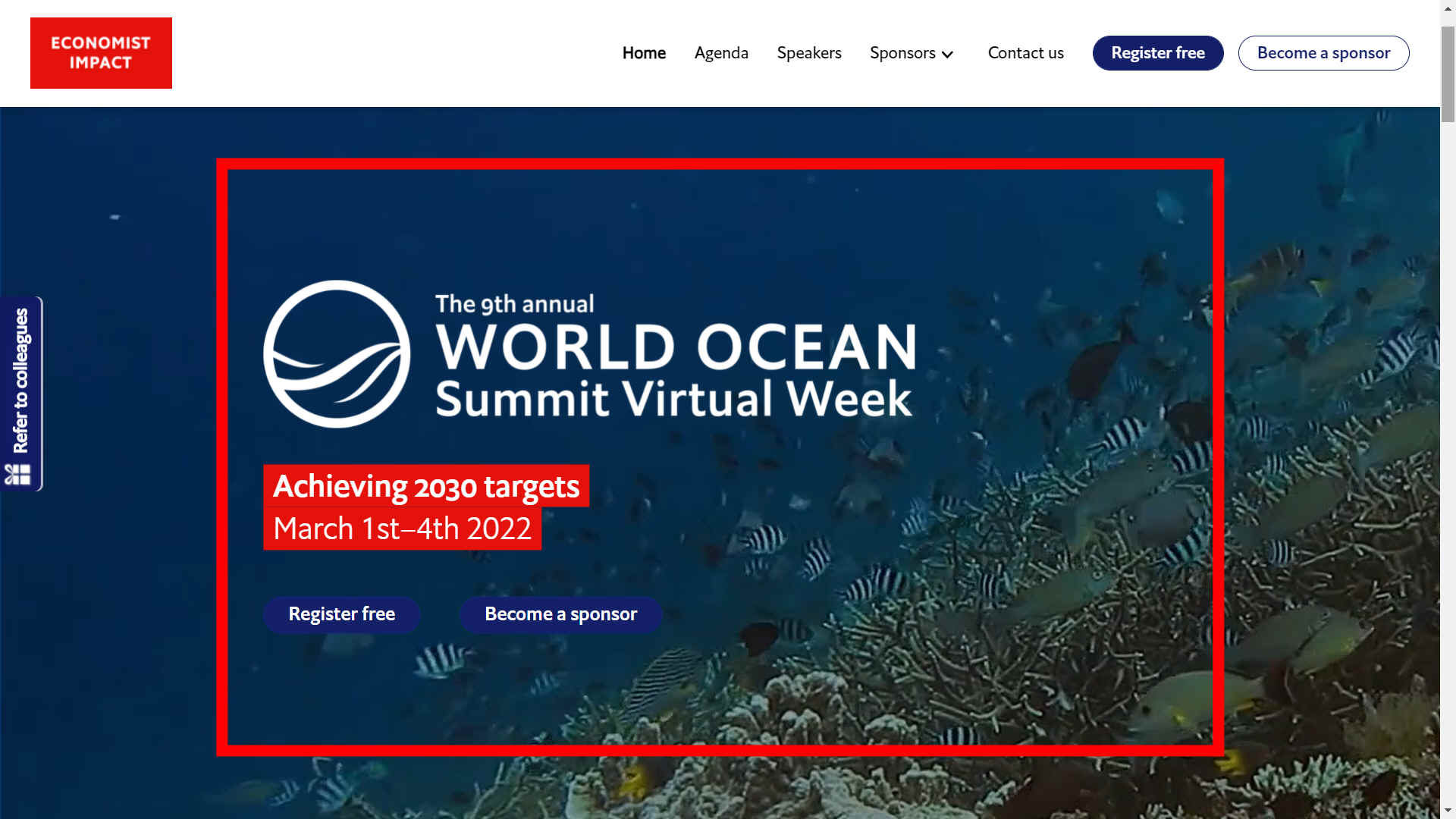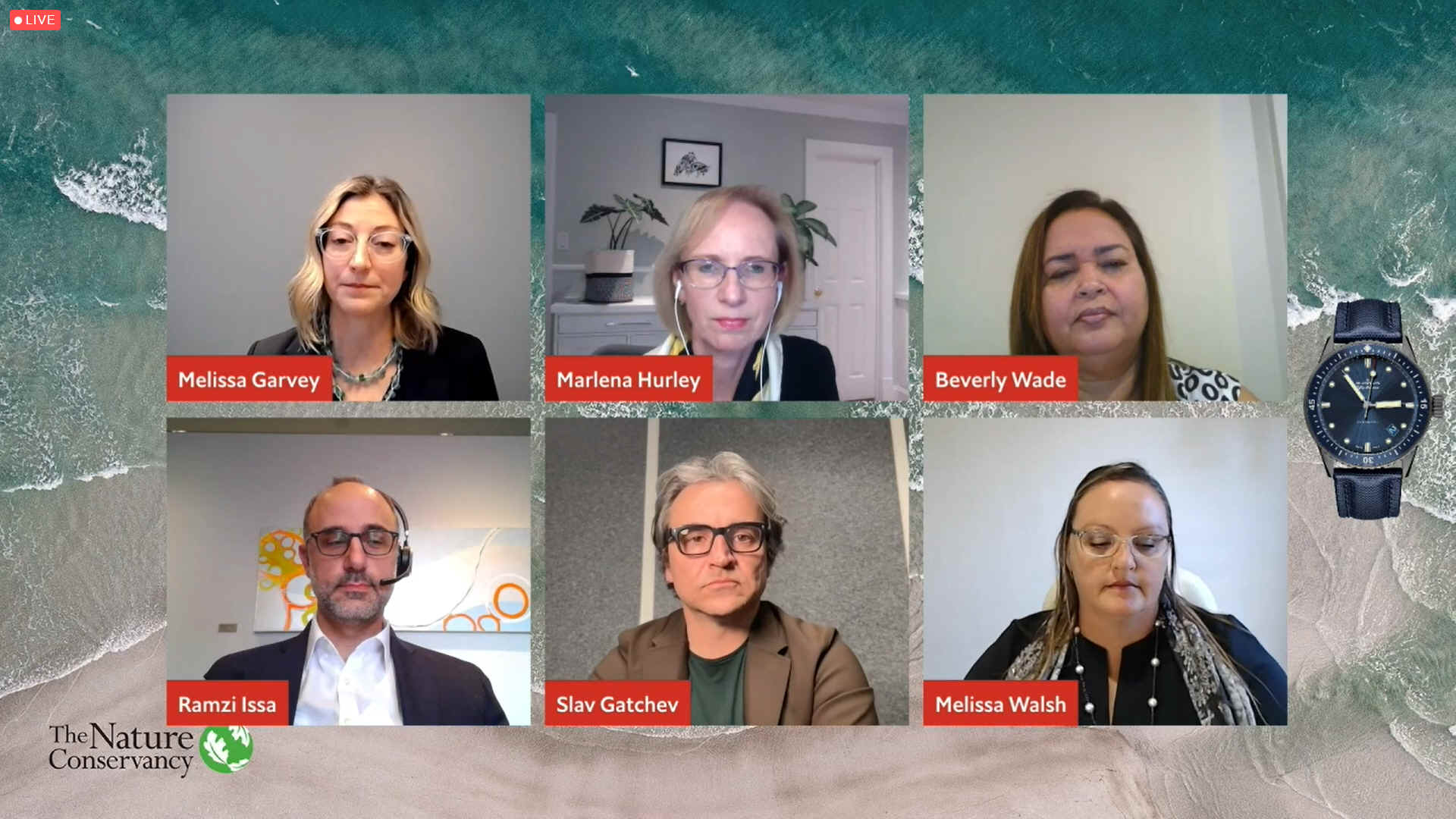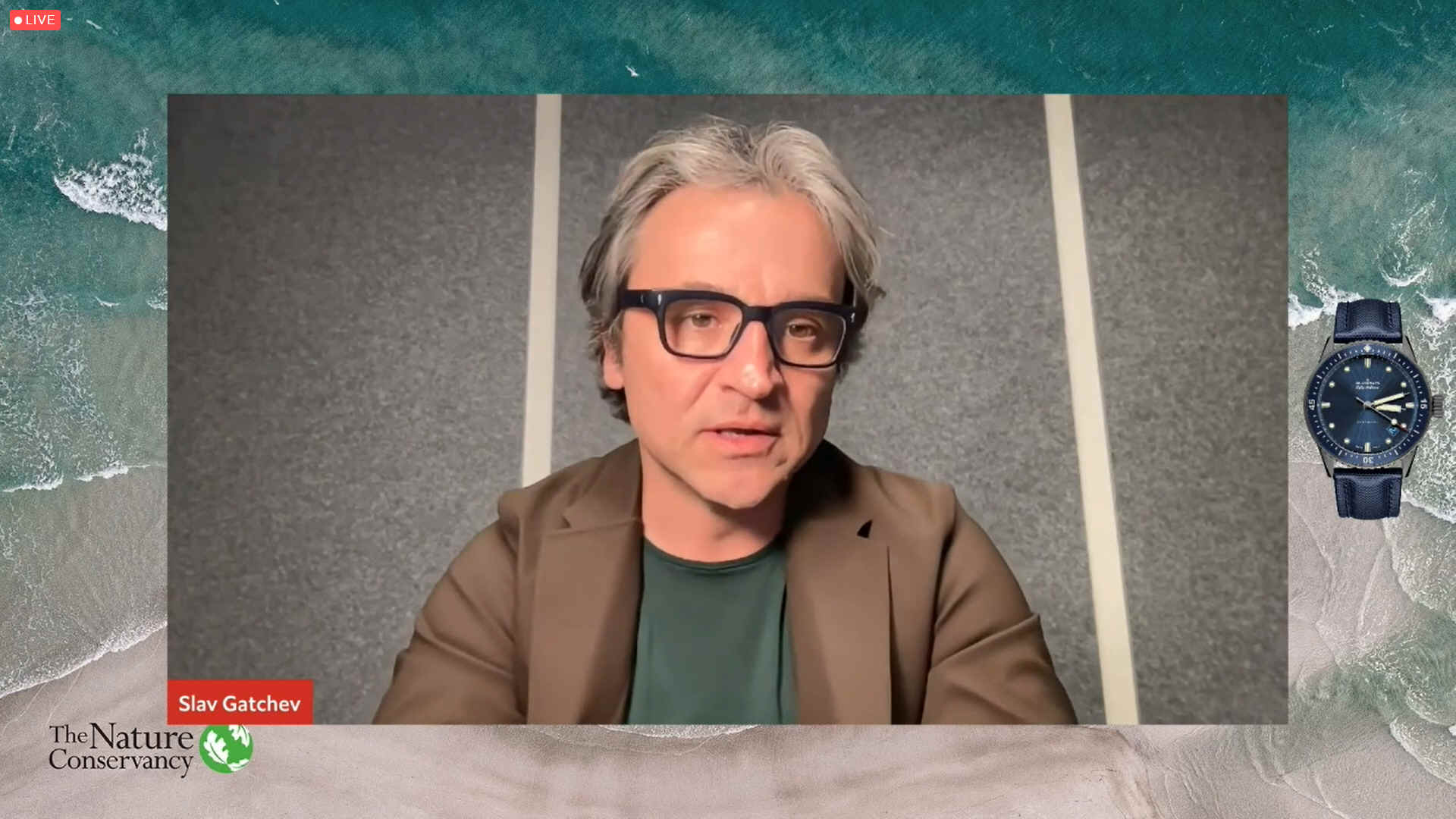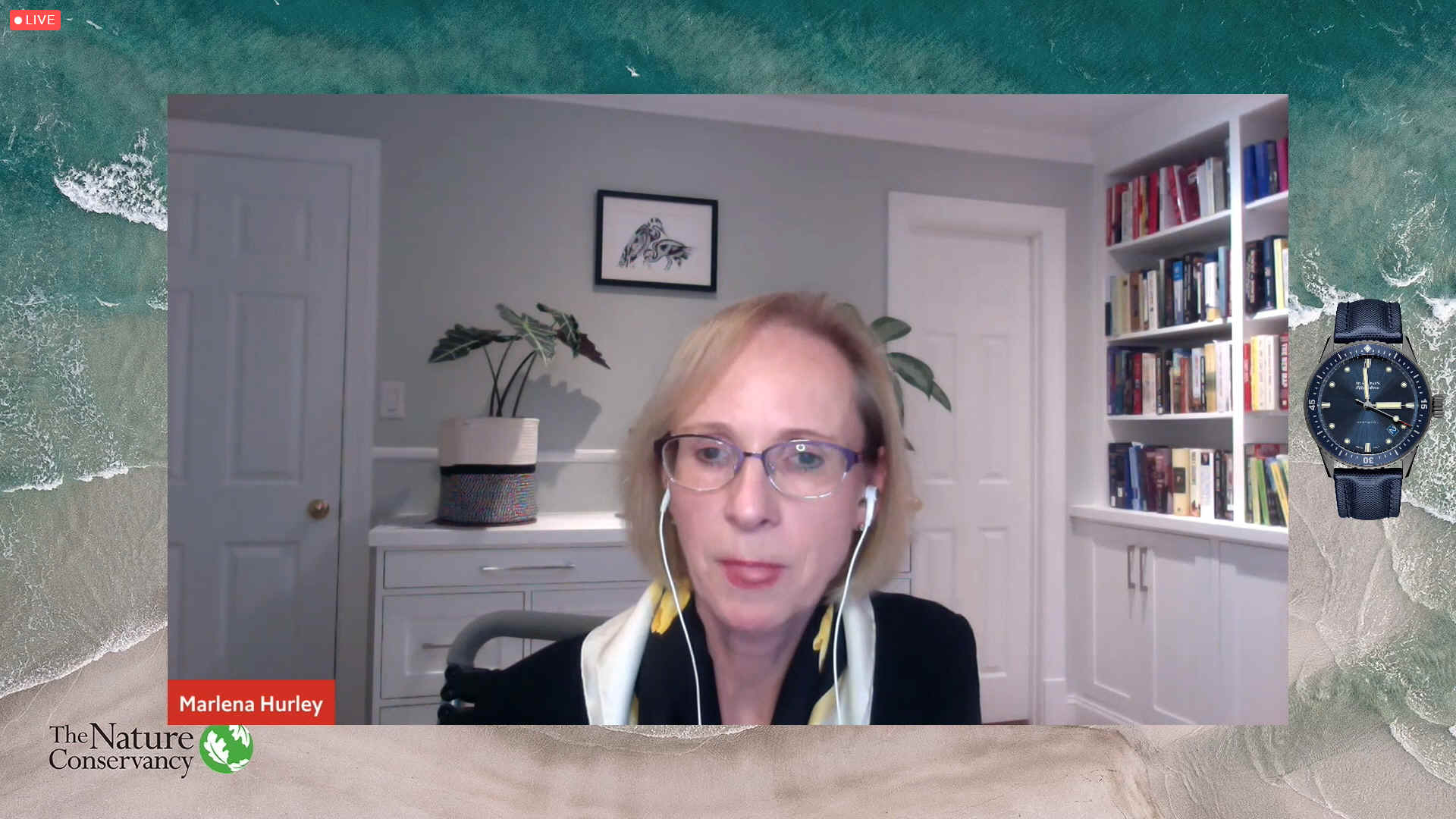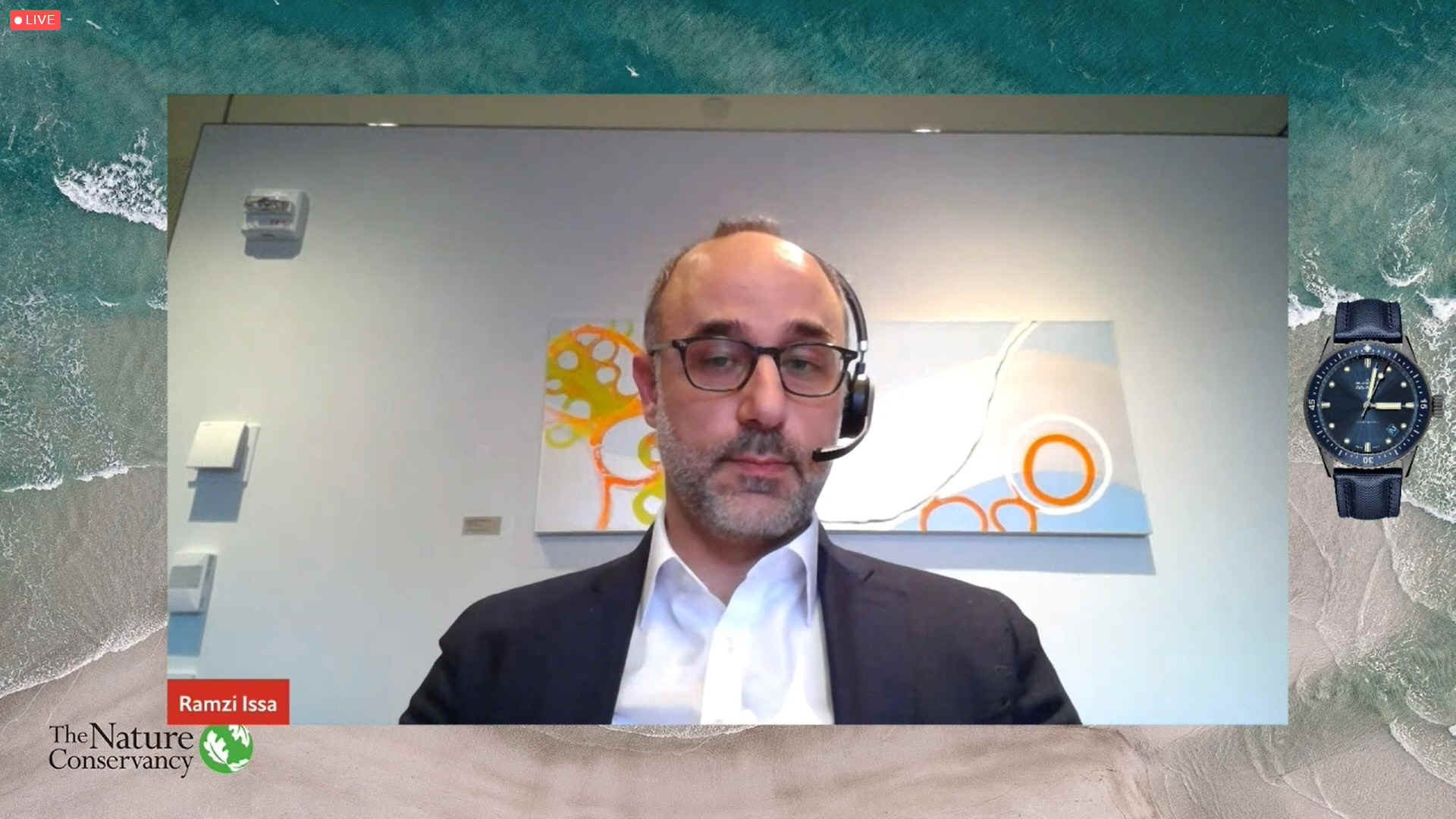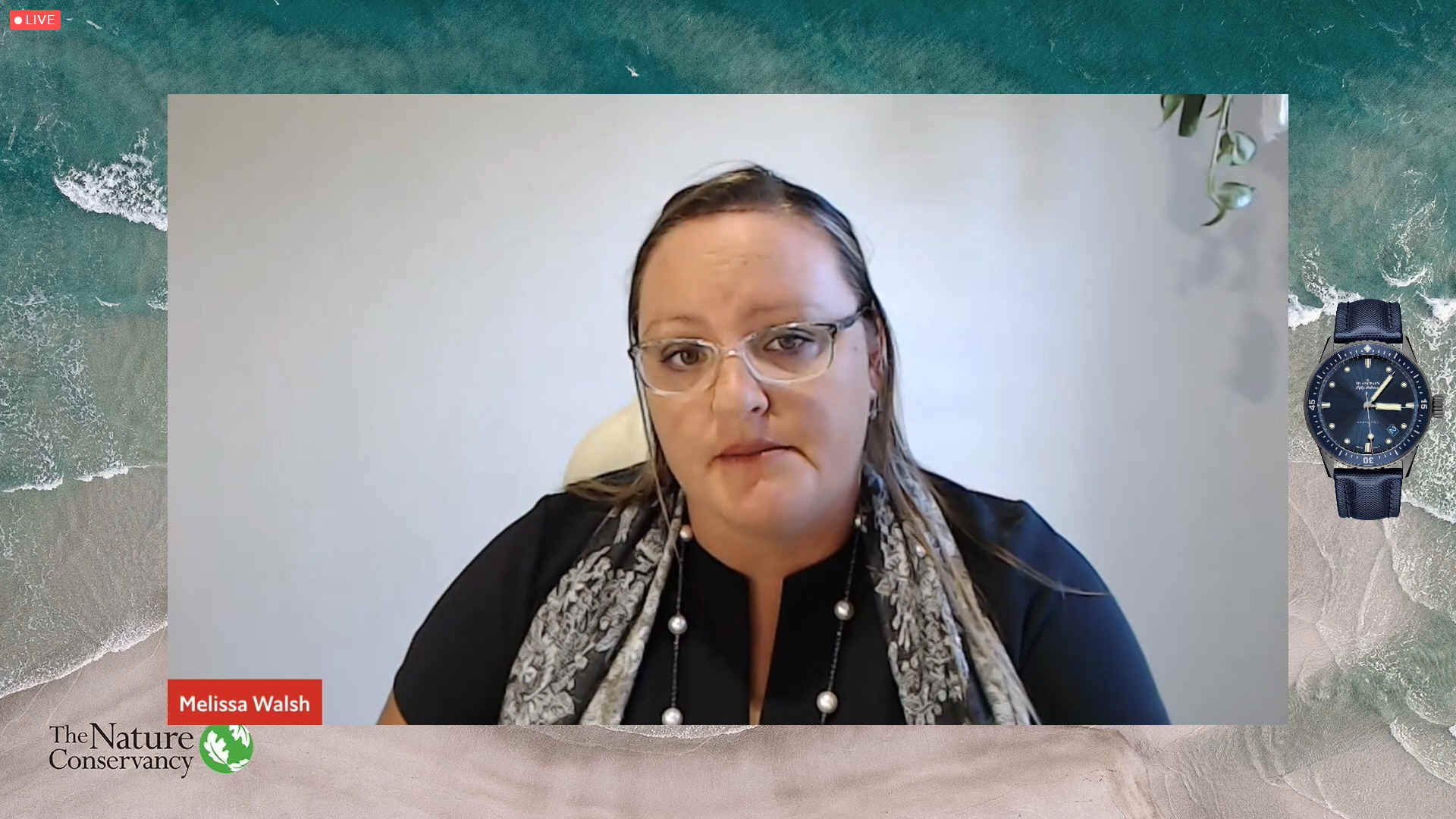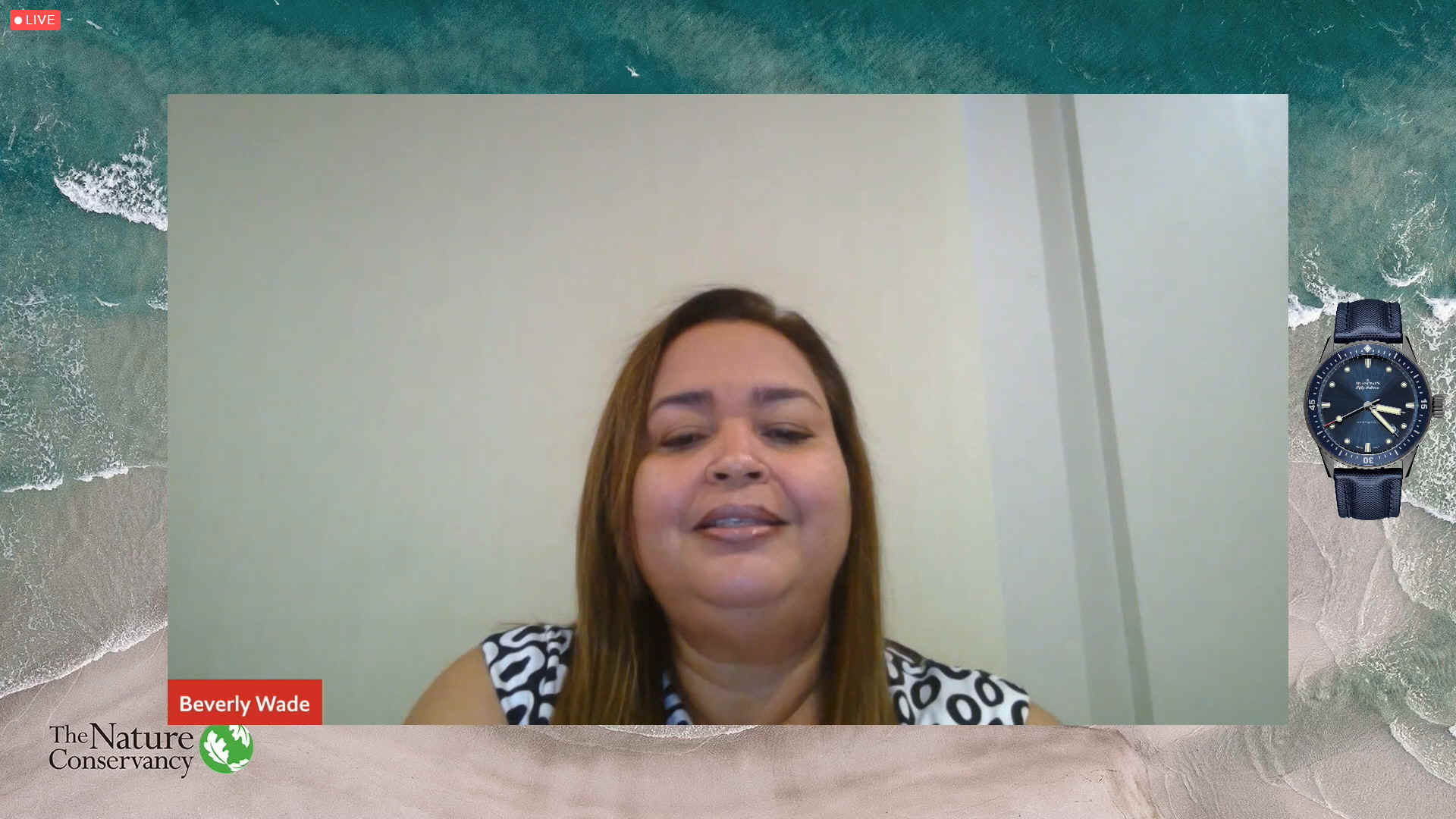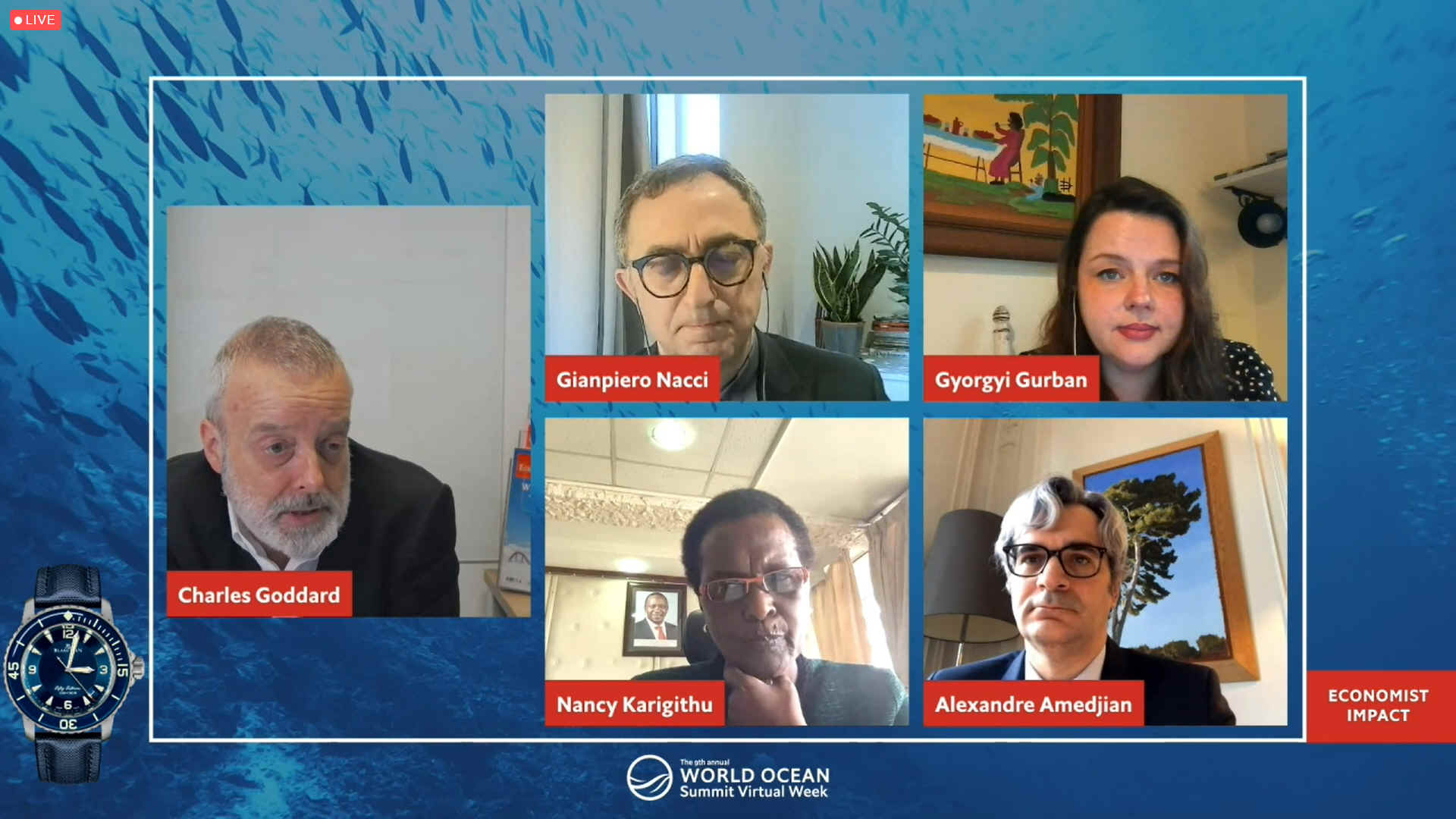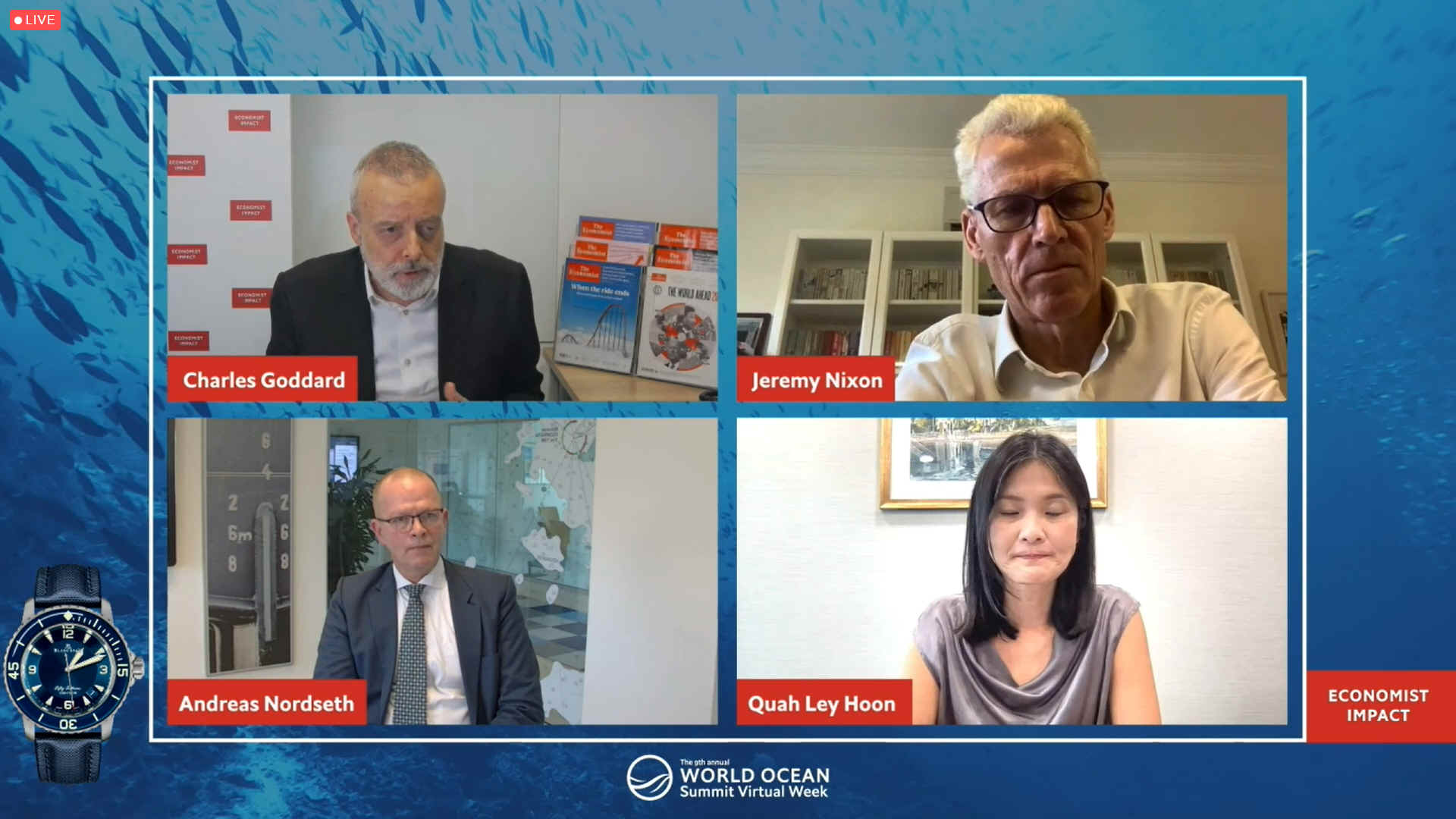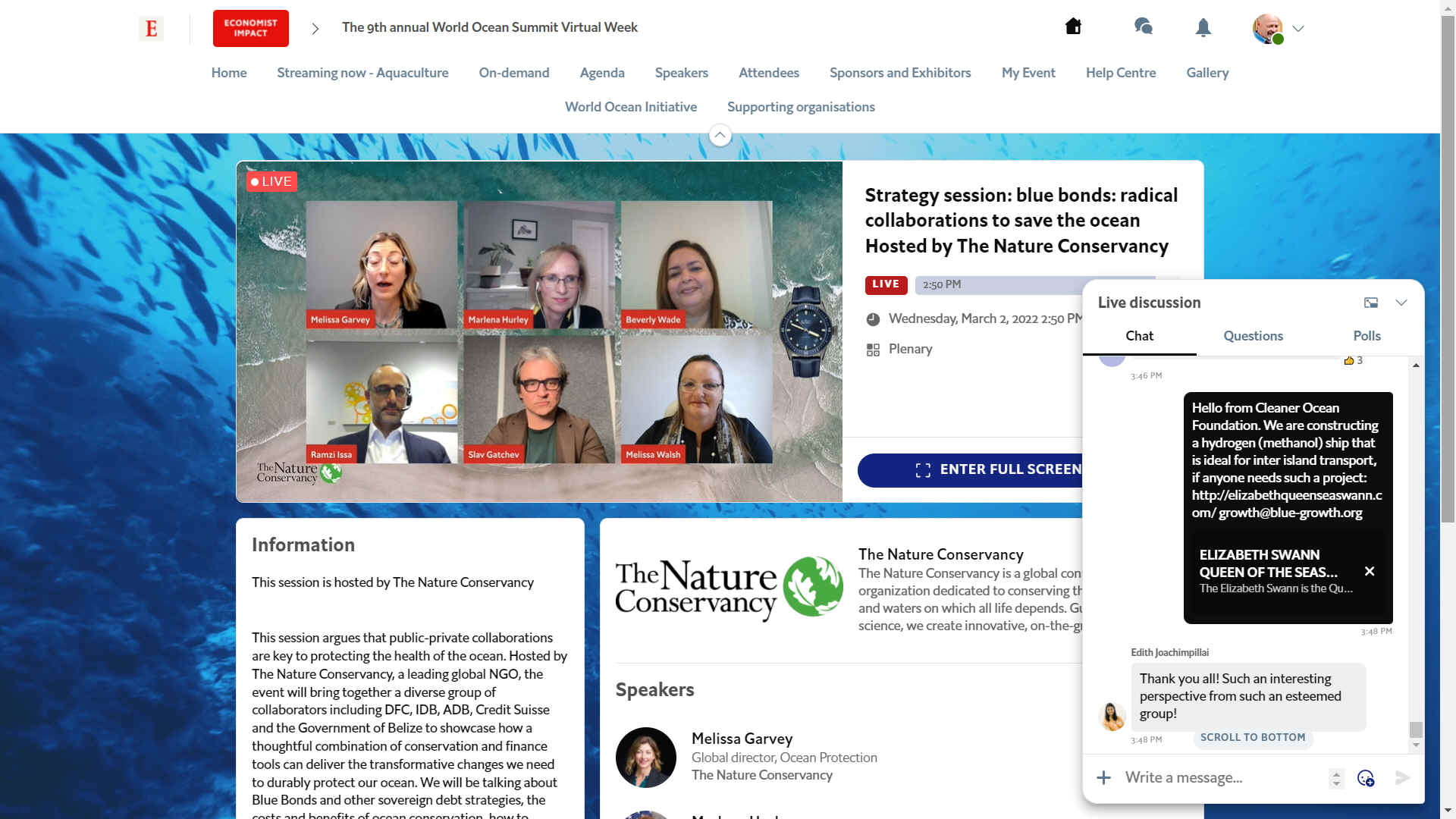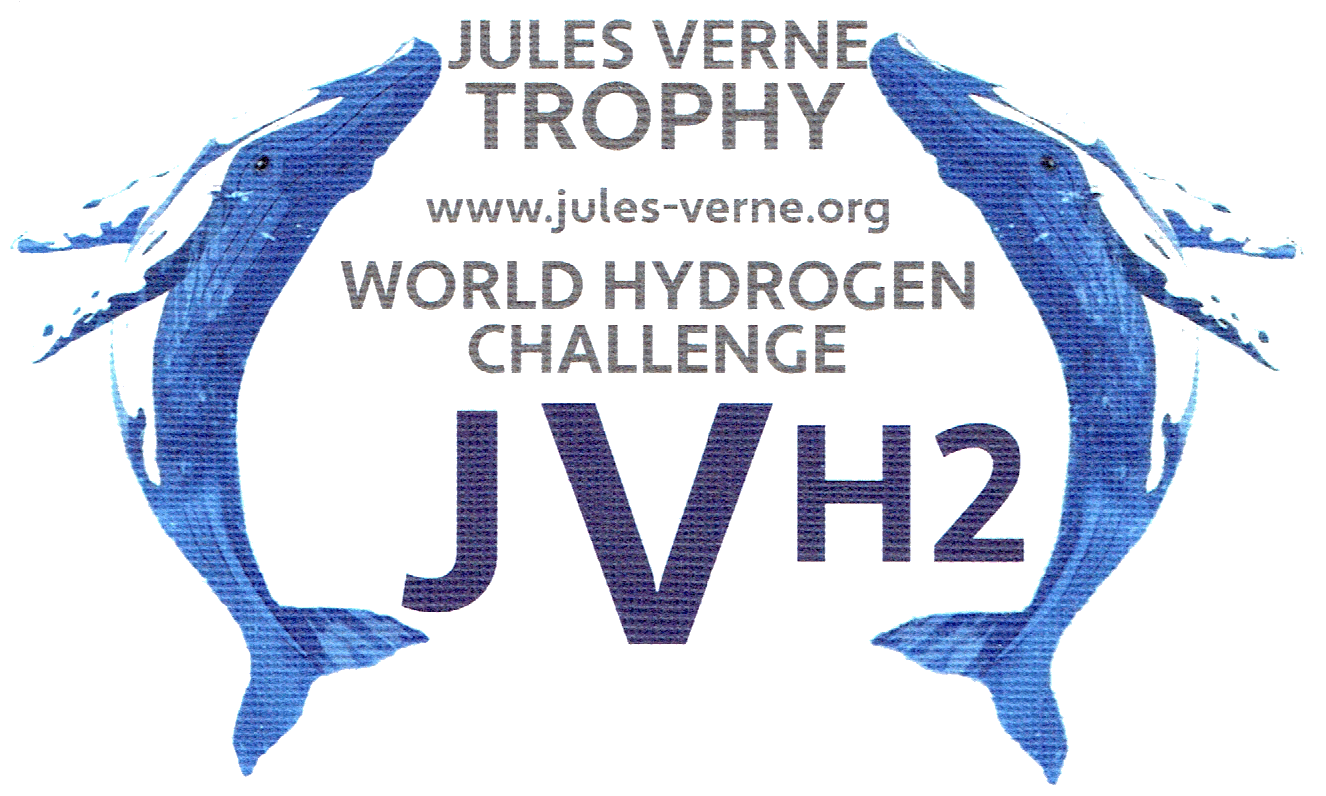|
BLUE BONDS - 9th ANNUAL WORLD OCEAN SUMMIT 2022
PLEASE USE OUR A-Z INDEX TO NAVIGATE THIS SITE, OR RETURN HOME
|
|
|
|
WEDNESDAY
2nd MARCH 2022
In order for Blue Bond projects to come to pass, it is necessary for the governments have a high level of commitment; Grit.
The private sector can take these risks, but only with suitable finance, support and guarantees, projects might see the light of day. Again, it all boils down to the level of dialogue with the G20 and IMF, and provide credit deals in favour of credible conservation programmes.
Melissa Garvey began working with The Nature Conservancy’s Colorado Chapter in 2006, and from 2014 to 2017 she was deputy state director for the Washington State Chapter. She became managing director of global oceans strategic initiatives in 2018, and global director of ocean protection in 2019. Ms Garvey leads the team responsible for TNC’s global programmes for ocean protection, coastal resilience, coastal-wetland conservation and reef-systems restoration, blue carbon, ocean planning and mapping, and community-based conservation. Her work includes the Blue Bonds for Ocean Conservation strategy, whose goal is to protect more than 4 million square kilometres of ocean by restructuring debt and leveraging $1.6bn for ocean conservation.
Blue Bonds are issued mostly to islands as they try to meet the Sustainability Development Goals, in relation to ocean conservation or nature conservation projects.
What is the big picture for ocean regeneration, and how can collaboration between governments, industry, investors, scientists and NGOs bring it about?
These sessions will outline International expertise, ambition and new strategies to restore ocean health.
Slav Gatchev is managing director for sustainable debt at The Nature Conservancy. Since March 2021 he has led a team of eight professionals in developing and closing sovereign financings that unlock funding for conservation, including Belize’s refinancing of $550m of external commercial debt. Before this Mr Gatchev was co-head of Delphos International, a Washington, DC-based advisory firm. During his two decades at Delphos he led the raising of $3bn from development finance institutions for emerging-market infrastructure, and launched and grew the firm’s transaction advisory business. Mr Glatchev served two terms on the Renewable Energy and Energy Efficiency Advisory Committee at the US Department of Commerce.
Marlena Hurley is managing director for political risk insurance and reinsurance at DFC, the US government’s development finance institution. Her portfolio includes investment insurance worldwide across all sectors, with a focus on climate finance, energy and infrastructure, and global health. Most recently Ms Hurley led the team that provided insurance related to the TNC Blue Bonds for Marine Conservation in Belize. She worked at DFC in the 1990s and returned in 2015 after working in investment firms in Russia and Hungary focusing on investments in financial services.
This session argues that public-private collaborations are key to protecting the health of the ocean. Hosted by The Nature Conservancy, a leading global NGO, the event will bring together a diverse group of collaborators including DFC, IDB, ADB, Credit Suisse and the Government of Belize to showcase how a thoughtful combination of conservation and finance tools can deliver the transformative changes we need to durably protect our ocean. We will be talking about Blue Bonds and other sovereign debt strategies, the costs and benefits of ocean conservation, how to unlock funding for “blue economy” projects, best implementation practices, and more – leaving you with concrete ideas of how to sustainably finance ocean conservation.
One of the most active categories in climate tech last year, an activity that shows little sign of slowing down two months into 2022, is 'fintech' software.
WHAT IS FINANCIAL TECHNOLOGY – FINTECH ? Ramzi Issa is a managing director at Credit Suisse in New York. He is head of credit structuring in the Americas, leading the origination of structured credit products in the region within the investment bank. Mr Issa joined Credit Suisse in 2007. Prior to this he worked at the Central Bank of Canada for three years as an economist and trader.
Melissa Walsh is programme manager of the Ocean Finance Initiative for the Asian Development Bank, supporting ADB’s commitment to raise $5bn for ocean health by 2024. She is an expert in ocean finance and the blue economy. Ms Walsh has worked in marine conservation in government, the private and non-profit sectors and academia. She has more than 20 years’ experience in coral reef science, management, and conservation finance, working in Hawaii, the Pacific Islands and Australia. Before joining ADB Ms Walsh designed and managed the Pacific Ocean Finance Programme to improve the amount and efficacy of finance for Pacific Ocean governance.
z
Beverly Wade is director of the Blue Bonds and Project for Finance Permanence Unit in the Office of the Prime Minister of Belize. She is responsible for implementation of blue-loan and conservation funding agreements and for coordinating the delivery of key marine-conservation targets and commitments. With 27 years’ experience in fisheries and oceans management, Ms Wade has played a leadership role in establishing marine protected areas and has championed an ecosystems and blended-finance approach for the conservation of nature and special areas as key to the development of Belize’s blue economy and adaptation to climate change. The areas they have sought to protect have contributed to around $1 billion dollars to their economy. With climate and conservation financing they have to be innovative when dealing with climate related debt.
The panel of speakers Tuesday 1st March 2022, provided some very interesting aspects of financing the change to zero carbon shipping, where it is by no means clear what fuels will prevail, and how aggressive the IMO will be in setting targets. Concessional finance might include a tie in with carbon taxes and R&D innovation funding - or even scrappage. z
Charles Goddard imagines and builds the Group’s flagship initiatives, the purpose of which is to catalyse progress on key issues of the day. He works closely with partners on themes ranging from ageing and longevity to ocean health, focusing particularly on healthcare, the Anthropocene and the blue economy. Based in Hong Kong, Charles was previously editorial director, Asia, at the Economist Intelligence Unit, director of research in Asia, and managing director of the Economist Corporate Network, a peer network for senior executives. He is concurrently executive director of the Group’s World Ocean Initiative.
The 9th annual World Ocean Summit will feature six industry tracks focusing on:
WHAT IS CLIMATE FINTECH ?
When fintech emerged in the 21st Century, the term was initially applied to the technology employed at the back-end systems of established financial institutions. Since then, however, there has been a shift to more consumer-oriented services and therefore a more consumer-oriented definition. Fintech now includes different sectors and industries such as education, retail banking, fundraising and nonprofit, and investment management to name a few.
CONTACTS
|
|
LINKS & REFERENCE
https://events.economist.com/world-ocean-summit/
|
|
|
|
|
|
PLEASE USE OUR A-Z INDEX TO NAVIGATE THIS SITE
This website is provided on a free basis as a public information service. copyright © Cleaner Oceans Foundation Ltd (COFL) (Company No: 4674774) 2022. Solar Studios, BN271RF, United Kingdom. COFL is a company without share capital whose founding objects are charitable, being not-for-profit.
|
